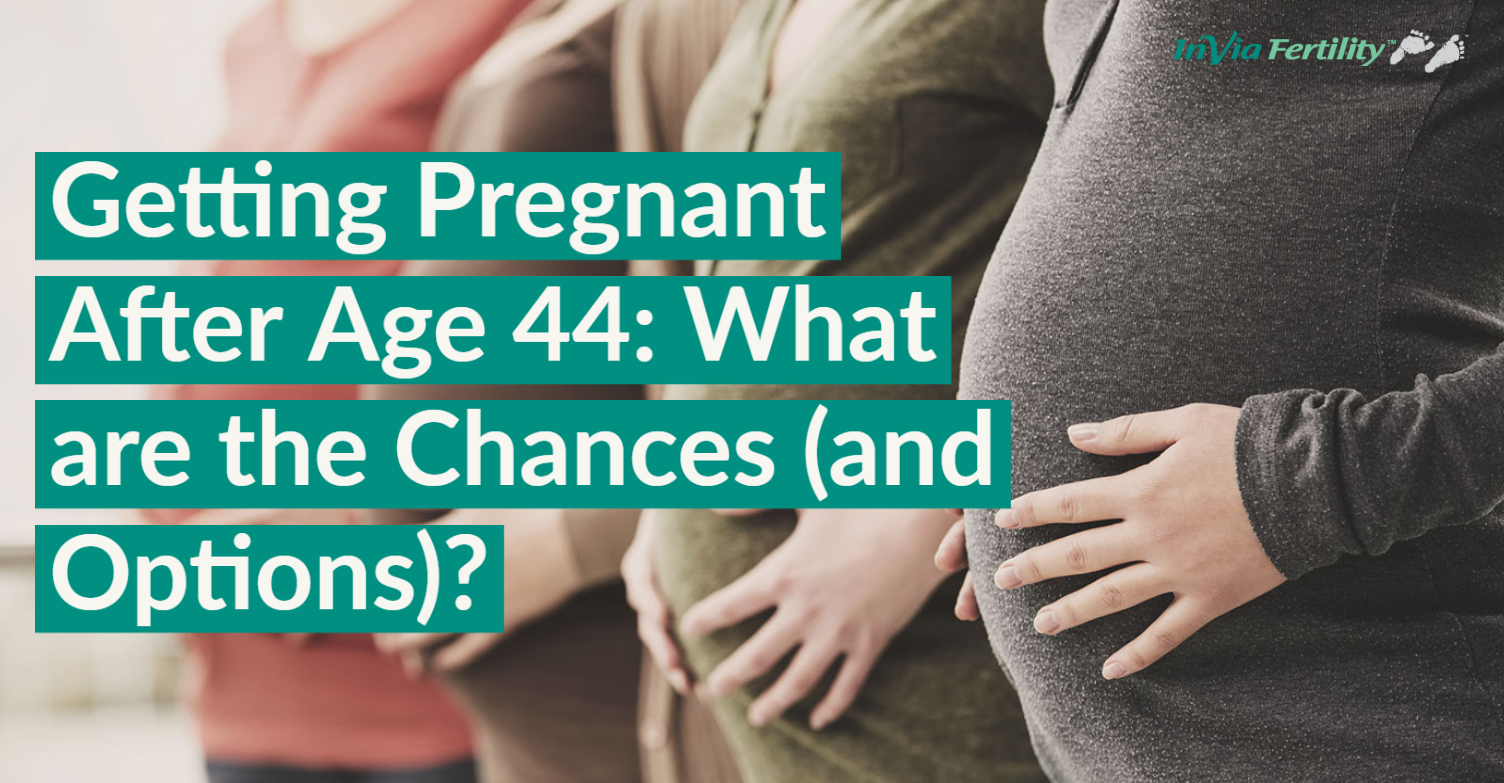
A reader recently posted this question on a previous blog:
I am 44 years old healthy non-smoker yoga practitioner, AMH 1.45 and FSH 9, high prolactin (25) but all else normal/good. Cycle regular with variation b/t 28-31 days ... married recently and trying for 6 months. My husband’s sperm is very good, he is 45. What are our chances for conceiving naturally? About to see rep. endocrinologist and view options, of which I think Clomid is one.
The woman who submitted this comment has a healthy lifestyle and is probably in excellent health but having trouble getting pregnant naturally. The big issue is her age. She is doing the appropriate thing by consulting with a reproductive endocrinologist, but really, what are her chances and options?
I recently wrote a blog on optimal infertility treatment for women around 40 years old. In that blog, I reviewed data from a study that included women from ages 38 – 42 years. The conclusion was that it is okay to start with three IUI cycles but the option with the highest pregnancy rate was in vitro fertilization (IVF). In fact the majority of pregnancies in the study were with the IVF option. But what happens when patients go beyond this age range? What are the chances and options for getting pregnant at 43 and above?
Yes, she could conceive naturally at 44 years of age. The chances, however, are low. There is a 33 - 50% chance of miscarriage and an increase in the incidence of chromosomal problems with the baby, such as Down syndrome.
It is generally accepted that after age 40, clomiphene citrate is not very effective. The pregnancy rate is less than 5% per cycle at age 43 years. But, this number is not that different with other (more aggressive) options. So, she could try a few clomiphene citrate cycles with timed intrauterine inseminations. This would be okay by me as long as she understands that the pregnancy rate will not be much different than them trying naturally.
According to the Society for Assisted Reproductive Technologies (SART) database, in 2013 there were 5,744 IVF cycles nationally in women > 42 years of age. Of these, 8.9% resulted in a pregnancy and only 4.5% resulted in a live birth. It can be seen that almost 50% of the pregnancies resulted in a miscarriage. Only 7.3% of embryo transfers in this age group resulted in a live birth. In comparison, the live birth rate in women ages 38 – 40 years, 28.5% of embryo transfers resulted in a live birth. Thus, the pregnancy rate even with IVF (using her own eggs) is less than 5% in women above age 42 years. They are even lower at age 44 and practically zero at age 45 years.
The reason the pregnancy rate is so low is that most if not all of the embryos in these women are chromosomally abnormal (aneuploid). Most chromosomally abnormal embryos will not implant. If they do implant, a lot of them will miscarry (hence the high miscarriage rate). Or, if the pregnancy continues, there is an increased risk for having a baby with a chromosomal abnormality.
One of the strategies that is being investigated is to “pool” embryos from 2 – 3 egg retrievals. Embryos are biopsied 5 days after egg retrieval (blastocyst stage) and then frozen (cryo-preserved). We then perform pre-implantation genetic screening (PGS) on the embryos. The expectation is that hopefully one to two embryos will be “normal” (euploid) and result in a pregnancy. I have yet to see a paper showing a good pregnancy rate using this strategy. It is also very expensive to do 2 – 3 IVF cycles but there are some patients who would be willing to invest in this – if it works! If all the embryos turn out to be aneuploid, it may help the couple reconsider using donor eggs.
A lot of my patients in this age group will use donor eggs to get pregnant. The live birth rate with this option is around 60% per embryo transfer. The graph below shows the pregnancy rates with non-donor eggs and donor eggs in women based on their age.
As you can see, even after age 43, the pregnancy rate using donor eggs remains excellent. The incidence of miscarriage will be around 15%. Also, the chances of having a baby with a chromosomal abnormality (e.g. Down syndrome) will be low.
Another treatment option that may need to be considered is to use donor embryos. Adoption and child-free living are other options that can be considered.
To see a fertility specialist that offers a wide variety of treatment options including ovulation induction, intrauterine inseminations, IVF, PGS, egg donation and embryo donation, make an appointment at one of InVia's four Chicago area fertility clinics.
Egg donation Infertility Infertility treatment IVF Embryo donation InVia Fertility Specialists Diminished ovarian reserve

Entire Website © 2003 - 2020
Karande and Associates d/b/a InVia
Fertility Specialists
